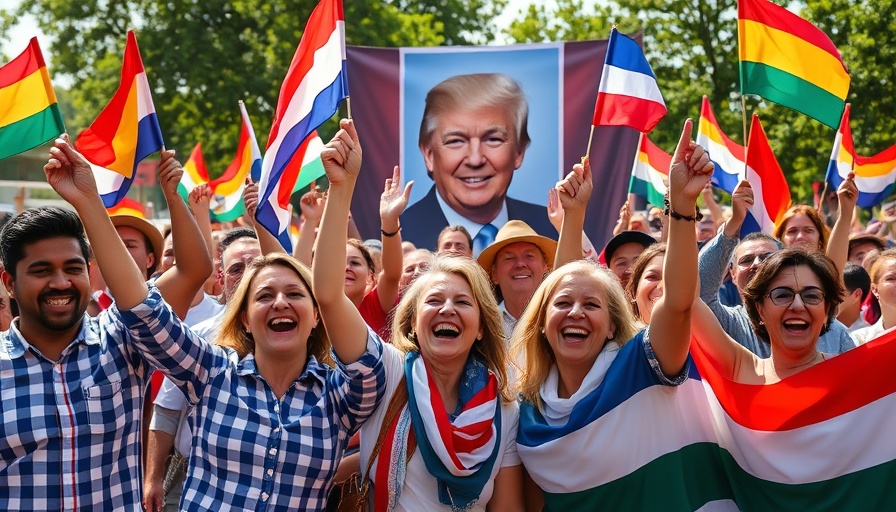
Pre-Election Landscape: Alassane Ouattara's Vision for Ivory Coast
As Ivory Coast approaches the critical presidential election scheduled for October 25, 2025, President Alassane Ouattara is embarking on a nationwide campaign launch to solidify his base and garner support for his bid for a fourth term. This move comes in a climate marked by tension, where the echoes of past electoral violence still resonate among the electorate. Ouattara's journey as a politician is deeply entwined with the nation’s tumultuous history, a fact not lost on observers as he rallies support through a strategic tour aimed at regional outreach.
The Stakes of Leadership in Ivory Coast
Alassane Ouattara, who first rose to power after the post-electoral crisis of 2010-2011, finds himself at a pivotal moment where his leadership will be scrutinized not only for its past successes but also for its ability to navigate a peaceful electoral process in the face of significant opposition. With the Democratic Party of Côte d'Ivoire led by Tidjane Thiam and the Party of African Peoples in Côte d'Ivoire led by former President Laurent Gbagbo forming a coalition against Ouattara’s administration, the stakes are exceptionally high for both the incumbent and the challengers, raising questions about democracy and governance in the region.
The Influential Role of the Constitutional Court
Adding further complexity to the electoral process is the uncertainty surrounding the candidacy of Gbagbo and Thiam due to their current exclusion from the electoral roll. The Constitutional Court's upcoming ruling on their eligibility could drastically alter the electoral landscape, representing an opportunity for the opposition to unite or a potential catalyst for renewed violence should disqualification occur. Given the Ivorian history of political unrest, many citizens are anxious for a fair process that upholds democratic principles.
Citizens' Yearnings: A Peaceful Election
The people of Ivory Coast are visibly yearning for an election free from the shadows of violence that have marred previous cycles. Cultural and civil initiatives calling for peace are gaining momentum, reflecting a citizenry eager for stability. This yearning was poignantly echoed at a recent sports tournament organized to promote peace, highlighting the need for maturity from political actors to prioritize the welfare of the nation over personal ambitions.
Future Outlook: National Unity and Reconciliation
The Ivorian political landscape is at a crossroads. As much as Ouattara's party presents itself as the stabilizing force—promoting economic growth and infrastructure development—the growing calls for democratic integrity and accountability cannot be ignored. The upcoming elections symbolize a chance for Ivoirians to advocate for a governance style that encompasses all voices and reflects a commitment to international standards of human rights.
The Global Perspective: Implications for Africa's Governance
As Ivory Coast’s electoral battle unfolds, the implications extend beyond its borders, serving as a litmus test for governance across Africa. The continent observes closely, as greater stability in Ivory Coast could pave the way for enhanced economic integration under frameworks like the African Continental Free Trade Area (AfCFTA). Conversely, a politically charged atmosphere could reverberate through the region, impacting perceptions of governance and democracy across similar polities.
Concluding Thoughts: The Role of Civic Engagement
Ultimately, the Ivorian elections stand as a testament to the importance of civic engagement in shaping the future of governance. With every vote, citizens can send a clear message to both the government and their leaders, one that speaks to the ideals of democracy, transparency, and accountability. Whether through peaceful rallies, constructive dialogue, or active participation in the electoral process, the populace holds the keys to ensure that their aspirations resonate within the halls of power.
 Add Row
Add Row  Add
Add 




Write A Comment